'We are the world' lullabies in Windsor
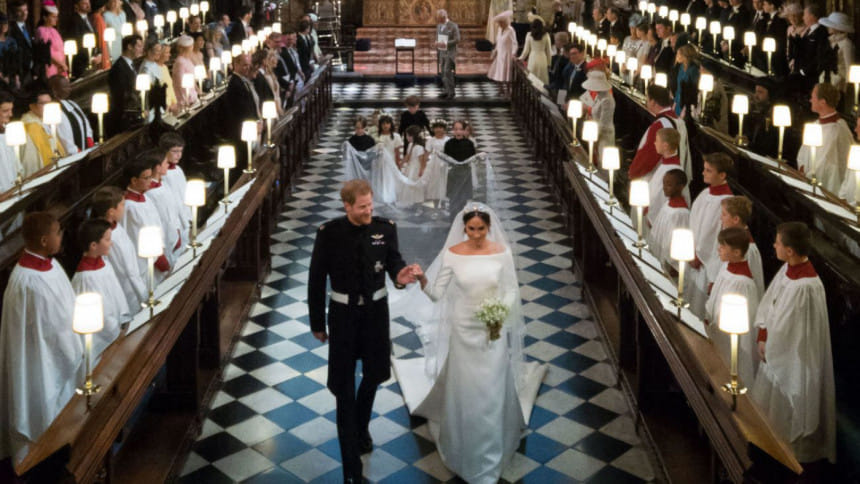
It was just what the increasingly divided world needed, a cementing force: Meghan Markle to sparkle the audience, and Prince Harry to carry the tone and torch of his mother, the "People's Princess". Behind Bishop Michael Curry's fiery speech, it seems Michael Jackson's "We are the world" carried the Windsor wedding as a silent uninvited guest.
Behind the pageantry and photographs lay a very divided Britain: Brexit was only the tip of a long-accumulating iceberg in which not just Britons, tired of the many "Polish plumbers" symbolising the European invasion, wanted to leave the European Union, but also, perhaps even more so, an almost generation-long chasm of integrating Muslims, among other immigrants, into an increasingly resistant society given the recent terrorism upsurge. Of course, there was also Scotland failing, by not too wide a margin, of 55-44, to win an independence referendum in 2014.
One might as well add secular generational and technological changes to that pile. As often observed by too many in the marriage ceremony, the "old" order, of which Britain is a punctilious supporter and practitioner of, had its required rendezvous with the "new". Both Meghan and Harry played this to the hilt so naturally. Behind articulating the oldest of messages on love, straight from the scriptures, Bishop Curry forcefully pitched the "new" and "forgotten": rivers of preferences crisscrossing communities of indifference, their contents yearning to be heard, tasted, encouraged, and accepted, at least partially. His message was strong enough to stir the audience; that he carried a different skin colour also exposed where healing was most due, if not across Britain, then wherever populism was ascendant. The way Meghan and Harry clasped their hands so tightly during that speech might lead one to conjecture that that is precisely what they wanted, to absorb the "new" in common British conversations. How that message was choreographed gave it the best chance of not failing.
Meghan came with the credentials to inherit the vacant "People's Princess" crown from a mother-in-law she would have automatically clicked with. She had certainly tamed a wild, tryst-replete youthful Harry just when his country needs him the most, to be the Pied Piper of that much needed change. His elder brother, the Duke of Cambridge, Prince William, keeps one foot in the "old" camp (and has become quite a favourite among its denizens). Yet, even he could not but explore the "new" with the other foot, since that is the domain where his only sibling, indeed the lone person he has bonded with the most since their mother left, seeks identity. Diana's marriage, in fact, may have directly touched the occasion. It was broken far too early for her personal comfort or royal pique, but by culminating in an affair with Egyptian Dodi Al Fayed, son of Harrod's former owner, Mohamed Al Fayed, stamped an authoritative off-beat royal tone that Harry is out to normalise.
Historically, however, there has always been a cheeky side to the "old" royal order in England. One cannot quite forget how the stone-walled Charles loudly wished, in a December 1989 bedroom telephone conversation with Camilla Parker Bowles, how he could live inside her as a tampon (revealed by Mirror and People magazines in 1993). Of course, there is stigma associated with sexual tabloid gossips in any royal setting. Yet, in 2005, Camilla still entered the royal family by marriage to Charles. Meghan's and Harry's grappling with even more stubbornly divisive issues, like race and nationalism, was more up-front, and the way it has been conducted, quite unlikely to rock the royal agenda. Her stunning yet simple wedding dress, particularly the veil and tail, embossed all the 53 Commonwealth country flags, even though it carried an English trademark with Clare Waight Teller as designer, albeit for a potpourri multinational, Givenchy. This admixture must have been one of the wedding's highlights.
Similarly, Prince Charles's orchestral music choices expectedly projected nationalistic scores, but were balanced by a defiant gospel stand-out song sublimely sung, "Stand by me". Released by Ben E King in 1961, it originated in 1905 with Reverend Charles Albert Tindley, whose influence upon Bishop Curry was admittedly immense. Of Philadelphia origin, the song quickly took the US South by storm at a time when the promises the 1860s Civil War envisioned for blacks remained as far as ever from reality.
This Atlantic matrimony rippled farther beyond. Elton John's enormous musical talent may have become a royal favourite, but it was as if he played second-fiddle to an invisible Jackson silently humming "We are the world". With "Stand by me" underscoring local defiance, "We are the world" only globalised it. "There comes the time when we heed a certain call," it began, "when the world must come together as one." Meant to bail Africa out of famine in 1985, today it strives to dampen discriminations and hostilities in every continent.
Meghan and Harry could revitalise that decaying Commonwealth edifice more effectively than Prince Charles, who was singled out as successor by the Queen in the London Commonwealth Head of Government summit recently. Yet, she might be the last to demur if Prince Charles passed that baton to his more hands-on daughter-in-law. Indeed, a wider world awaits her to pick up where Diana left off, not necessarily with land-mine: gender gaps being as explosive today as ever, demand a lot more attention.
Nowhere else would the cementing be more concertedly felt than inside Britain's transatlantic partner, the United States. Donald J Trump has done enough to alienate Angela Merkel's Germany; Emmanuel Macron treats him as an evil, though a necessary one; and his visit to Britain is not generating welcoming bites sufficiently. With both transatlantic sides slowly splintering, Meghan and Harry carry what may be necessary to restore trust and faith.
Broader still, a trenchantly divided world needs a royal marriage between racially and nationalistically different partners to adjust to a technologically reconfiguring future. As machines challenge humans, one hopes human frailties, such as discrimination mindedness, may also begin to evaporate. Resuscitating the Commonwealth is a starter, but the rest of the world would have to follow through big time.
A similar occasion once descended when the unthinkable happened: an Afro-American striding into the White House (and a 21st-century "white man's world"), that too with a mandate to run the country from the Oval Office. Though Barack Obama brought back the dignity that was lost with John F Kennedy's assassination and Michelle the grace Jacqueline Kennedy decked the White House with, before their time and after, democratically elected officials have been leaving too many lascivious and rapacious fingerprints to sustain public interest and pride. Meghan and Harry may not only be the increasingly desperate fresh air we need in every nook and corner of this planet, but also a last reprieve should their key message remain unheeded.
Dr Imtiaz A Hussain is the head of Global Studies & Governance Program at Independent University, Bangladesh.
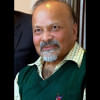



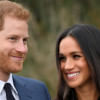
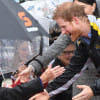
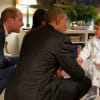
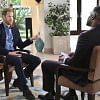


Comments